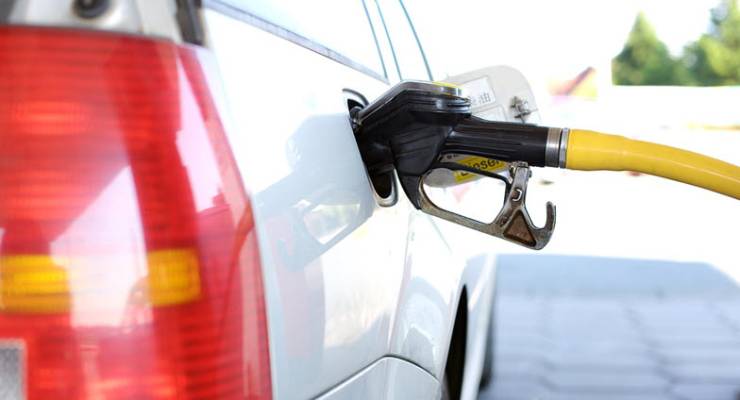
The Trump administration’s posturing over Iran, at the behest of its friends in Israel and Saudi Arabia, isn’t merely a subject for foreign policy blog debate. The proof: the re-imposition of sanctions on Iran and the threat of military conflict will put further pressure on oil prices that were already rising.
In fact rising petrol prices are rapidly consuming Malcolm Turnbull’s $10 a week tax cut for average earnings. According to figures from AMP Chief Economist, Dr Shane Oliver, the rise in global oil prices towards US$80 a barrel (they briefly topped that level late last week) has seen an $8 a week rise on average in the cost of petrol in Australia this year. And he reckons there is more to come, which could effectively push the average weekly cost past the $10.19 a week benefit from the tax cut, if it comes.
According to Oliver’s weekend note:
Reflecting strong global demand, falling inventory levels and the threat to the supply of Iranian oil, global oil prices have risen around 45% over the last year and this has driven a sharp rise in Australian petrol prices from around $1.25/litre to around $1.45/litre. The lag from higher oil prices to higher petrol prices suggest Australian petrol prices may rise another 3-4 cents/litre in the next week or so.
On the upside, this won’t feed too much into inflation beyond what non-electric car users are already paying at the bowser. According to Oliver, “the indirect impact is likely to be muted in Australia’s case as constrained consumer spending in the face of soft wages growth is making it hard for businesses to pass on cost increases.”
We’re still not close to the levels that animated politicians in 2008 (it’s the 10th anniversary of Brendan Nelson’s Tarago with a wheelchair in the back), but it is the highest since late 2014 as global oil prices were collapsing.
Of course, the government first-stage tax cut is supposed to be addressing the iniquity of bracket creep, not relieve pressure on pay packets from rising oil prices. But this is the problem when wages growth is so low (as a consequence of long-term policy to shift power to corporations and undermine unions). Relatively small inflation impacts from oil price hikes can turn real wages growth negative even for the lucky private sector workers who have managed higher-than-average growth.
If the US ramps up its Iraq-style regime change campaign against Iran, or markets even think it’s going to, the pain will become very real, very fast. And Bill Shorten will be exploiting it a lot more effectively than Brendan Nelson and his Tarago.









Yeah – but the difference is between the short term and the long term. In the short term prices may waft to a point were the frackers might, again, enter the market and that threshold has, more or less, been attained – or perhaps $15 shy (for a reasonable margin). However, it is not beyond OPEC to suppress the price to circa US$50 or indeed US45/barrel to flick the frackers from the market (yet again).
In the longer term there is the viable proposition of electronic (and driver-less) cars; perhaps only 15 to 20 years away. By circa 2050 only marine and aviation needs will require oil in any quantity. Having written that, conjectures in the 80s as to world supply of oil were anticipated to expire about now.
As noted by Kyle above, OPEC can stop this at any moment it chooses, with a flick of the tap wrist. Meanwhile it is fun to watch the infidel money pour in.
(Nods & hugs to Venezuala, Nigeria & Alberta.)
Better to let the West wet itself and the fukwit frakkers tool up again – the next deluge shoud finish that idiocy for good. Until the next time.
Meanwhile this broad, sparsely populated continent with its choked cities of obese urbanoids has an over production on sugar cane and more sun than it has the brains to utilise, but screams about paying between half to 2/3 of euroid petrol prices. (When they hit winter in a couple of months and have to start heating to stay alive for the rest of the year plus an uncertain, climate changed Spring such as they had this year, the faeces might interface with the air movement device.)
Poor Bugger, my Country.
Where I am we’re already paying $1.49/litre. That electric VW combi sure is looking good. Ah the 70s…
It’ll be interesting to see how Turnbull P/L blame Labor.